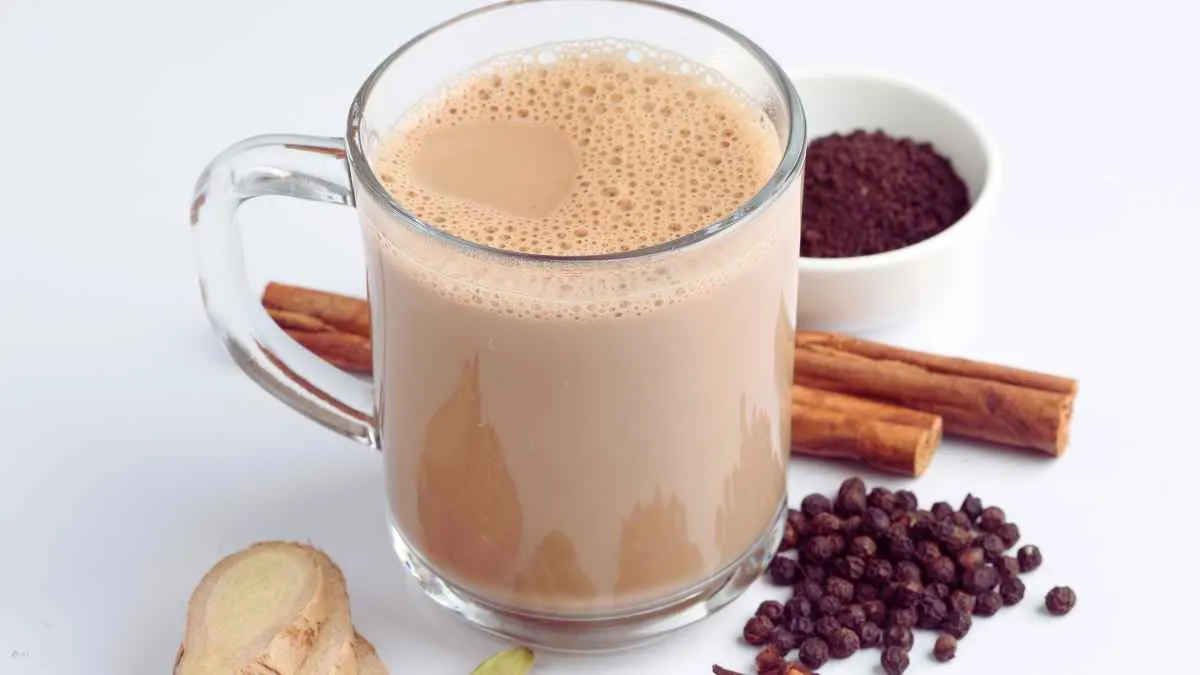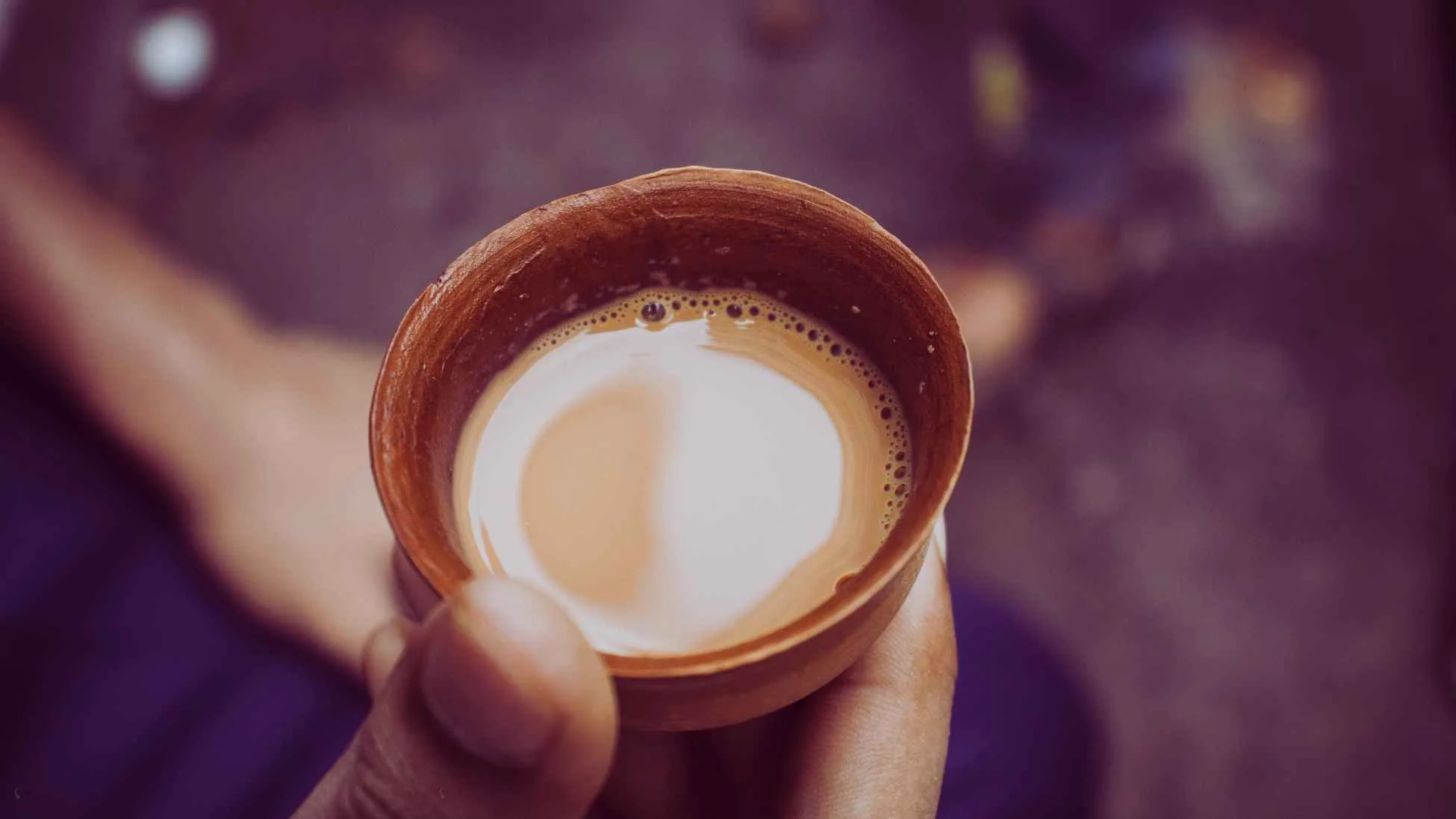Milk tea is a beloved drink worldwide, combining the warmth of tea with the creaminess of milk. It’s a popular beverage consumed in various forms and enjoyed both in the morning and at night.
However, with growing awareness about the importance of liver health, many wonder: Is milk tea bad for the liver?
In this article, we’ll explore the impact of milk tea on liver health, addressing both the potential risks and benefits based on existing research and expert opinions.
What Is Milk Tea?
Milk tea is a simple beverage that typically combines brewed tea (usually black, green, or oolong) with milk and sometimes sugar or other sweeteners. Variations such as masala chai include spices for added flavor.
The tea base provides caffeine, and the milk adds richness and texture. While milk tea is a comforting and popular choice for many,
it’s important to consider its impact on health, particularly liver health, due to the ingredients it contains.
Does Milk Tea Affect Liver Health?

1. The Impact of Caffeine in Milk Tea on Liver Health
One of the primary components of milk tea is caffeine. Tea contains caffeine, which is a natural stimulant that can have various effects on the body, including the liver. Moderate caffeine intake is generally considered safe for most people and may even have some benefits for liver health.
Research suggests that moderate coffee and tea consumption may help reduce the risk of liver diseases such as cirrhosis and non-alcoholic fatty liver disease (NAFLD). A study published in the Hepatology Journal found that regular coffee drinkers had a lower risk of developing liver cirrhosis, and similar benefits may apply to tea drinkers, particularly those consuming green tea with its high antioxidant content.
However, drinking excessive caffeine, including from milk tea, can lead to liver stress, especially in individuals with pre-existing liver conditions. The liver metabolizes caffeine, and when consumed in large quantities, it may overwhelm the liver’s detoxification processes.
According to Healthline, moderate caffeine consumption (about 200-400 milligrams per day for most adults) is generally safe, but excessive amounts can strain the liver and cause other health issues (Healthline).
2. Sugar Content and Its Effects on Liver Health
One of the most significant concerns with milk tea is its sugar content. Many milk tea variations, especially commercial ones, are laden with sugars and syrups, which can have a detrimental effect on liver health when consumed in excess. Added sugars, particularly fructose, are a known risk factor for fatty liver disease.
Non-alcoholic fatty liver disease (NAFLD) is often linked to high sugar consumption, and the liver becomes overwhelmed as it attempts to process large amounts of fructose. The American Liver Foundation highlights the relationship between sugar and liver disease, noting that excessive sugar intake can lead to fat accumulation in the liver, which may lead to liver inflammation and, eventually, cirrhosis (American Liver Foundation).
To mitigate the risk, it is advisable to limit the amount of sugar in your milk tea or opt for unsweetened or lightly sweetened versions. Choosing natural sweeteners like stevia or honey might be a healthier alternative.
3. Dairy in Milk Tea and Its Impact on Liver Function
For people who are lactose intolerant, consuming milk tea can lead to digestive issues such as bloating, gas, and diarrhea. While these issues do not directly impact liver health, consistent digestive discomfort can contribute to inflammation in the body, which may affect overall health, including the liver.
For individuals who experience lactose intolerance, switching to plant-based milk alternatives like almond milk, oat milk, or soy milk may help reduce the risk of digestive discomfort and prevent additional stress on the liver.
Additionally, for those who do not have lactose intolerance, whole milk may contribute to higher fat intake, which, when consumed excessively, can lead to fatty liver disease over time.
4. Antioxidants in Tea and Their Protective Effects on the Liver
On a positive note, tea itself—especially green tea and black tea—is rich in antioxidants like catechins and polyphenols. These compounds have been shown to have anti-inflammatory and antioxidant properties that can help protect the liver from oxidative stress and inflammation.
According to the World Journal of Gastroenterology, green tea in particular has been linked to improved liver function and may even help in the management of NAFLD. The polyphenols in green tea can help reduce fat accumulation in the liver, making it a liver-friendly beverage when consumed in moderation (World Journal of Gastroenterology).
Thus, while the milk and sugar in milk tea may pose risks to liver health, the antioxidants in tea can provide some level of protection. Moderating the amount of sugar and using green or black tea as the base can help maintain the beneficial effects while minimizing harm to the liver.
Recommended: How To Drink Tea With Tea Bag | A Simple Guide for Beginners
Common Questions:
1. Can Drinking Milk Tea Damage Your Liver?
Drinking milk tea in moderation is unlikely to cause liver damage. However, excessive consumption of sugary milk tea, particularly with added syrups, can contribute to liver problems such as fatty liver disease.
It is essential to monitor your sugar intake and choose unsweetened or lightly sweetened versions to protect liver health.
2. Does Caffeine in Milk Tea Affect the Liver?
Caffeine in milk tea does not generally harm the liver if consumed in moderation. In fact, moderate caffeine intake from tea can have protective benefits for the liver.
However, consuming too much caffeine, including from milk tea, can place additional stress on the liver and lead to complications, particularly in individuals with liver conditions.
3. Is It Okay to Drink Milk Tea Every Day?
If consumed in moderation, milk tea can be enjoyed daily. However, it’s important to limit the amount of sugar and ensure that the tea base contains beneficial antioxidants.
Excessive sugar and high-fat dairy options can increase the risk of liver disease, so opting for unsweetened milk tea or using plant-based milk alternatives can make your daily cup of milk tea healthier.
4. Can Plant-Based Milk Be Better for the Liver?
Yes, plant-based milk like almond milk or soy milk can be better for your liver, especially if you have lactose intolerance.
These alternatives tend to be lower in fat and sugar compared to regular dairy milk and may be easier on your digestive system, reducing stress on the liver.
5. How Can I Make My Milk Tea Healthier for My Liver?
To make your milk tea healthier for your liver:
-
Reduce sugar or opt for natural sweeteners like stevia or honey.
-
Use unsweetened plant-based milk like almond or oat milk.
-
Choose green or black tea for higher antioxidant content.
-
Limit your milk tea consumption to one cup per day.
-
Avoid highly processed syrups or flavorings, which are high in sugar and additives.
Last Call:
- In conclusion, milk tea is not inherently bad for your liver if consumed in moderation.
- The primary concern comes from the sugar content and the potential for excessive caffeine intake, both of which can lead to liver problems over time.
- Choosing unsweetened milk tea, reducing sugar intake, and opting for plant-based milk alternatives can help mitigate the risks and make milk tea a safer option for your liver health.
- For those concerned about their liver health, it’s always advisable to consult with a healthcare provider, especially if you have pre-existing liver conditions.
- By making informed choices about what goes into your milk tea, you can continue to enjoy this beloved beverage while keeping your liver healthy.

